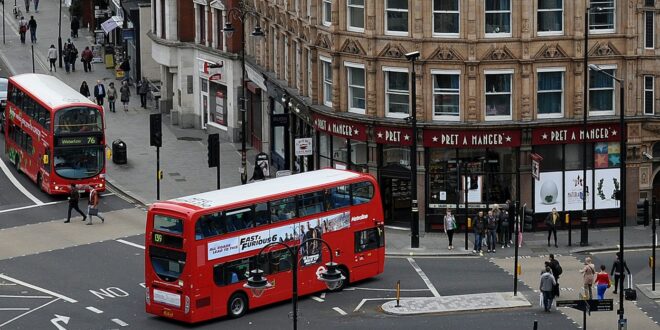By Sola Jolaoso | The African Courier
Planned visa restrictions under the UK’s upcoming immigration reforms could significantly affect African nationals, particularly those from Nigeria, as the British government moves to tighten control over legal migration routes that it believes are being misused for asylum claims.
According to a BBC News report published on 6 May 2025, the UK Home Office is considering introducing restrictions on visa applications from countries perceived to have high rates of overstaying or conversion from legal stay to asylum—among those mentioned were Nigeria, Pakistan and Sri Lanka.
The Home Office has not yet released up-to-date data on visa overstays, citing an internal review into the reliability of exit check figures, which have not been published since 2020. Nonetheless, the planned restrictions are based on concerns that some individuals, especially on study or work visas, later switch to claiming asylum to remain in the UK indefinitely.
In an official response quoted by BBC News, a Home Office spokesperson said the government is preparing “a comprehensive plan to restore order to our broken immigration system,” to be unveiled in a forthcoming Immigration White Paper later in May. The move is part of a wider strategy by the Labour government to reduce both regular and irregular migration—without committing to specific numerical targets.
Nigeria in the Spotlight
Nigerians, who in 2023 lodged 2,841 asylum applications in the UK (making them one of the top nationalities in that category), could be heavily impacted by this policy shift. In addition to asylum claims, Nigeria is also a major source of international students. According to the most recent available statistics, 44,195 Nigerian students were enrolled in UK institutions during the 2021/22 academic year—a figure that has more than doubled compared to the previous year.
While the new visa policies are framed as efforts to stop “abuse” of the system, critics argue they may unfairly penalize entire populations. As Professor Jonathan Portes of the UK in a Changing Europe think tank told BBC Radio 4, the goal seems more symbolic than statistical. “The aim isn’t necessarily to reduce numbers dramatically but to send a political message by tightening pathways perceived as vulnerable to misuse,” he said.
Consequences Beyond Numbers
Enver Solomon, head of the Refugee Council, offered a human rights perspective. He pointed out that geopolitical realities often force legal migrants into seeking asylum. “Some people on work or study visas may find their lives at risk because the political situation in their home country has changed,” he told BBC News, arguing that these individuals should be protected under international norms and not treated as rule-breakers.
This nuance is critical when considering countries like Sudan and Ethiopia, where sudden conflict or repression can upend the lives of those already abroad. The UK has long maintained that individuals should apply for asylum only if they are directly fleeing danger. However, critics say this doesn’t account for evolving political conditions.
Economic and Social Impact
The implications go beyond immigration policy. Restricting legal migration channels could have ripple effects on sectors that rely heavily on international labour and student fees—both areas where African nationals have played a growing role. The UK’s higher education sector, for instance, receives an estimated £28 billion annually from international students.
With former Prime Minister Rishi Sunak’s earlier restrictions—such as raising the salary threshold for skilled workers and limiting family reunification for care workers—already leading to a drop in work and study visas in early 2024, the latest announcements under Prime Minister Sir Keir Starmer signal further tightening. Labour’s stated goals include “cutting dependence on overseas labour” and preventing migrants from “abusing legal routes,” as reported by The Times.
 THE AFRICAN COURIER. Reporting Africa and its Diaspora! The African Courier is an international magazine published in Germany to report on Africa and the Diaspora African experience. The first issue of the bimonthly magazine appeared on the newsstands on 15 February 1998. The African Courier is a communication forum for European-African political, economic and cultural exchanges, and a voice for Africa in Europe.
THE AFRICAN COURIER. Reporting Africa and its Diaspora! The African Courier is an international magazine published in Germany to report on Africa and the Diaspora African experience. The first issue of the bimonthly magazine appeared on the newsstands on 15 February 1998. The African Courier is a communication forum for European-African political, economic and cultural exchanges, and a voice for Africa in Europe.


































